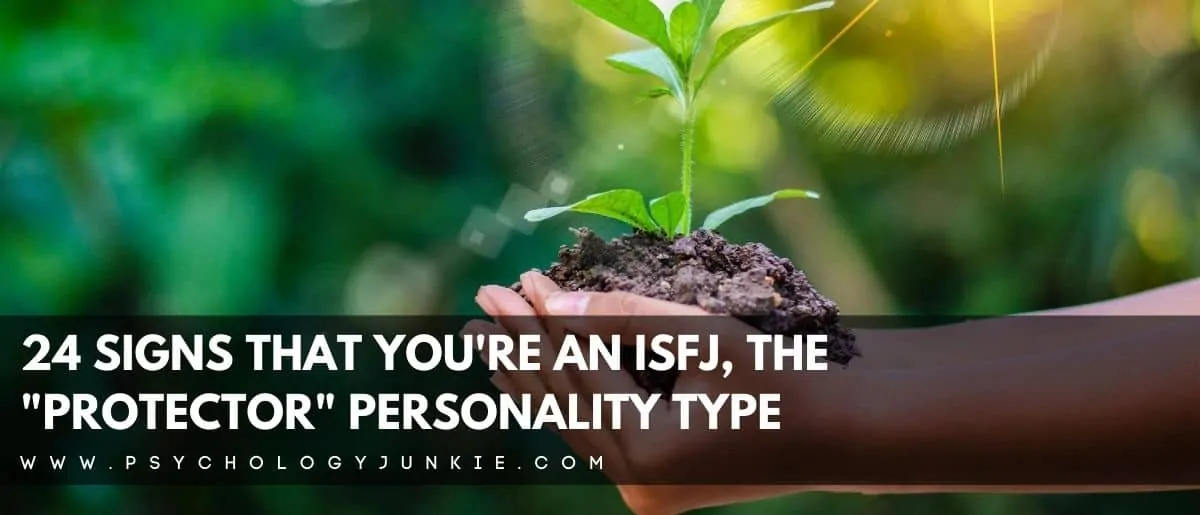Why Each Myers-Briggs® Personality Type Feels Trapped
Have you ever felt like you were stuck in a routine that sucked the life out of you? Do you ever feel trapped, but you’re not sure why? Today we’ll not only explore why each of the 16 Myers-Briggs® personality types tends to feel trapped, but how each type can combat these feelings.
Not sure what your personality type is? Take our new personality questionnaire here. Or you can take the official MBTI® here.

Estimated reading time: 13 minutes
How Each Myers-Briggs Personality Type Feels Trapped
The ENFP
The ENFP is often seen as the life of the party, but they can also feel trapped in unhealthy social dynamics. There is much more to this type than being entertaining or witty, but these qualities can attract many fair-weather friends. ENFPs often feel like they’re surrounded by people who only want to take from them, and they don’t always have the energy to create boundaries.
This type may also feel trapped when everyone around them expects them to maintain a certain role that is only one small part of who they are. For example, if you are an ENFP parent with many young children in your house, you might begin to lose yourself as “the fun mom” who has time for pretend play and silliness all day long. Over time you may start to feel like you’re only expressing 15% of who you are. Instead, refresh yourself with time alone for reflection and quiet, to once again discover the many nuanced facts of your personality.
Things to Remember:
- There are so many more dimensions and nuances to you than can be expressed in one role. Give yourself time to explore the many different sides of yourself.
- Give yourself permission to put up boundaries towards people who are energy-takers and only want your friendship when you’re positive and “fun.”
- Make time for quiet time to process your thoughts and feelings. Take time to meditate, rest, journal, and enjoy stillness.
- Cultivate healthy habits when it comes to eating, sleeping, and exercising. Many ENFPs are so filled with ideas and thoughts that they lose touch with their bodies.
Read This Next: A Look at the ENFP Leader
The ENTP:
This type is often seen as the “debater” of personality world, always looking for new ways to challenge their mind and spark their imagination. They tend to feel trapped when they’re unable to explore ideas or go down rabbit trails that pop into their minds. This personality craves novelty and ingenuity, so if you find yourself in a rigid environment where there’s no room for spontaneity, sparks will likely fly!
If you’re feeling trapped as an ENTP, it can help to seek out people who are open-minded and willing to engage in friendly debate. You can look online or join a local meetup! Working with others on a project or having some sort of activity that requires your minds to work as one will likely lessen your feelings of disillusionment, if only temporarily!
Things to Remember:
- Take time to honor the intuitive, insightful part of your personality type. Watch movies and see if you can guess the ending, plan outings that will test your resourcefulness (a volunteer-based trip, for example), or take a class. Just make sure you’re not over-scheduling or over-extending yourself.
- Try to find people who enjoy refining ideas and theories with you. These people can help you to express the tough, skeptical side of your personality without getting offended or shutting you down.
- Make time for quiet to process your thoughts. Take time to meditate, rest, research, and attend to your body.
- Cultivate healthy habits when it comes to eating, sleeping, and exercising. Many ENTPs are so filled with ideas and thoughts that they lose touch with their bodies.
The INFP:
The INFP often feels like a square peg trying fit into a round hole. The MBTI® community has nicknamed this personality “the dreamer”, but oftentimes society sees them as too different or sensitive. While INFPs have the ability to see beauty in everything around them, they can also become disillusioned when their sense of wonder and creativity are not reciprocated or appreciated.
This type also tends to feel trapped by societal pressures that don’t align with their beliefs or interests. As a common example, if you’re an INFP who has always wanted to work at a non-profit for animals, but your family pushes you to go into a more lucrative career path, then it may feel like there are no opportunities for growth or fulfillment or your goals will never matter to the people you care about.
For you, it’s crucial to find individuals who are as idealistic or creative as you are. Find a local volunteer group to sign up with, attend a religious meeting that matches your beliefs, join a book club, or participate in an online group for a cause that stirs your heart! Not only will this strengthen your resolve, but it’ll help open up new opportunities for growth and exploration. Being the one who inspires change in others might just bring about positive transformation within yourself too!
Things to Remember:
- Over-scheduling and segmenting your life can make you feel trapped and overwhelmed. Look at your schedule and make sure there is time for unstructured personal exploration and stillness.
- Give yourself permission to put up boundaries towards people who are energy-takers and who may be using you as an emotional dumping ground without giving anything in return.
- Explore the creative side of your personality by regularly giving yourself time to write, paint, toy with animation apps, or whatever gets you inspired! Don’t worry about it being perfect, just enjoy the process.
- Cultivate healthy habits when it comes to eating, sleeping, and exercising. Many INFPs are so filled with ideas and thoughts that they lose touch with their bodies.
The INTP
INTPs are analytical types who often feel like they’re walking on eggshells with people who don’t get them. The MBTI® community has nicknamed this personality type “the prodigy,” but oftentimes society sees them as too complex or reclusive. INTPs feel trapped when people try to force them into social norms that don’t suit them, making it feel impossible to find people who really let them be themselves.
This type can also feel trapped when they can’t find people to communicate with on an equal level. It’s frustrating to them when they think they’re forming a friendship, only to be seen as rebellious, argumentative, or tactless. Many an INTP has played the devil’s advocate without meaning to, simply because they’re constantly trying to find truth and others just want small-talk or vapid agreeableness.
If you are an INTP who feels trapped, it can help to surround yourself with people who appreciate your creativity and problem-solving skills! If being around others makes you feel stifled or uncomfortable, consider online communities where personality types like your own tend to congregate. You might find kindred spirits and an environment where your mind will be valued.
Things to Remember:
- Have you been filtering yourself or watering down your thoughts so as not to offend other people or be misunderstood? How can you honor the radically honest part of who you are in a way that won’t appear condescending or insensitive? Some INTPs over-restrict themselves while others are too brusque.
- Look at your schedule. Are you giving yourself time for unstructured exploration and stillness? Remember that for you it is crucial to have regular bits of open, unscheduled time so that you can revive your energy and be a happier, kinder person.
- Make time for creativity and new ideas. When you see new places, meet new people, or try new creative projects, you help the intuitive side of yourself to grow and flourish.
- Cultivate healthy habits when it comes to eating, sleeping, and exercising. Many INTPs are so filled with ideas and thoughts that they lose touch with their bodies.
Read This Next: A Look at the INFP Leader
The ENFJ
ENFJs are often admired for their ability to connect with people on a deep and meaningful level. But oftentimes they feel trapped by the demands of people who are close to them. Some ENFJs worry that they’re being taken advantage of by the people they love or they’re so busy giving that they start to lose touch with who they are on the inside. They enjoy the deeper waters of discovery and understanding, and are constantly trying to understand the world in a more profound way. Sometimes they feel trapped when society fails to appreciate their thoughts or when people only want to talk about details like the weather, fashion, or what’s happening on a particular television show.
ENFJs are happiest when they feel like their efforts to help others have made a measurable impact, whether that’s through community service or just being an enthusiastic partner in someone’s life. If you’re an ENFJ and you’re at risk of overextending yourself, set boundaries for what is and isn’t okay to take on. You may find that people will be more understanding than you expect!
Also, find ways to connect with people who share your interests and values. Join a book club or a cause that you believe in. If you’re short on time, meet people online who share your drive and curiosity. Being around those with a similar mindset will keep you from feeling trapped by the mundane details of everyday life, so you can stay focused on making positive changes in the world!
Things to Remember:
- There is much more to you than being a “giver,” or “mentor.” You can spend so much time in those two roles, though, that you stifle other parts of yourself. Give yourself time to explore the many different sides of yourself.
- Give yourself permission to put up boundaries towards people who are energy-takers and only want your friendship when you’re helping them in some way.
- Make time for quiet to process your thoughts and feelings. Take time to meditate, rest, journal, and enjoy stillness.
- Learn to recognize and honor yourself by talking to yourself in nurturing and loving ways, as you would to someone else. Think about yourself as a child, but in a way a parent would. How would you comfort, nourish, or encourage that child? What behaviors would you encourage or discourage? This simple practice can help you to honor more of your own personal values and needs.
The ENTJ
ENTJs are often seen as the most direct and straightforward Myers-Briggs® personality type. Did you know that they’re sometimes called “the commanders?” They love to be in charge of their surroundings, whether it’s by starting a new business or directing an office team-building exercise. They have a way of envisioning a long-term goal and creating the perfect strategy to get there.
ENTJs feel trapped in situations where everyone else is shirking responsibility or not pulling their weight. They also get frustrated when others lack enthusiasm about their ideas and improvements. If you’re an ENTJ struggling with frustration in this area, consider taking some time to slow down. When you make time for quiet, you can get a better grasp of the patterns that are leading you into a negative place. Are you spending time with people who don’t appreciate you? Are you doing something that’s rubbing people the wrong way? Do you need some rest? Are you overextending yourself? Allow yourself to slow down, quiet your mind, and focus on your own needs.
Things to Remember:
- You like a life that is active, busy, and productive. But there’s more to you than “commander” or “leader.” There’s a deeply insightful, intuitive side of you that needs space to breathe. Make sure you’re getting time to explore ideas on your own, read books that inspire you, or reflect on the deeper and more profound aspects of life.
- Be aware that when when you are “direct” you may unintentionally intimidate others. Take a moment to assess your relationships. Have you expressed appreciation out loud to someone you care about? Make sure you are regularly affirming the people that matter to you.
- Make sure you’re getting time for enjoyable creative or physical activities. Exercise and recreational activities can help you to discover a more fun-loving, relaxed side of yourself.
- You can feel overwhelmed if you’re constantly around hyper-sensitive or low-ambition people. Try to find friends or co-workers who appreciate your direct approach and are likewise honest with you. Make time for enjoyable debate or discussion about goals.
The INFJ
The most energy-giving moments for INFJs are quiet, open times when their thoughts can run freely. As introverted intuitives, they crave a deeper understanding of the world and they need time to soak in perspectives, insights, and epiphanies. Unfortunately, the world doesn’t cater to this type of productivity. INFJs are often pushed into social engagements that drain them, and outsiders often misunderstand them or dismiss them as impractical dreamers.
Sometimes INFJs think that if they could just explain themselves better, the people around them would finally get everything. As intuitives, they rely on metaphor and symbols, but their explanations are often misunderstood as being overly-abstract or confusing. They often feel like they’re the only people who truly grasp an idea, and that nobody else will ever understand them.
If you’ve been struggling with these feelings, try journaling. Write down your thoughts every day, whether you feel like you have anything to say or not. You can use the metaphor of a stream–just let your mind flow out onto the page without worrying about what comes next. Let it pour out until there’s nothing left to give and then come back tomorrow for more. This process can help you find your voice and understand yourself better. It can also help you to find the words to express yourself more fully!
Also, don’t give up on finding people who understand you! It may take a few tries and you may have to get through some small talk in order to veer into deeper territory, but it’s worth the effort.
Things to Remember:
- You are an introvert which means you need regular time you can count on to get alone and process your thoughts without rules or interruptions. When you get this, you’ll be more creative, insightful, and enjoy the people around you more fully.
- Give yourself permission to put up boundaries towards people who are using you as an emotional dumping ground without being there for you in return.
- Make time for inspiration. Read, create art (even if it’s bad), spend quiet time in nature, journal.
- Really notice and try to believe the positive things that people say about you. Write and talk to yourself in nurturing ways.
Read This Next: 7 Signs That an INFJ is Secretly Unhappy with Their Life
The INTJ
INTJs thrive when they can strategize, ponder, and envision the future. They are happiest when they have a challenge to sink their teeth into – whether it’s an intellectual debate or building something new from scratch. Unfortunately, the real world isn’t always conducive to this way of life. Between technology addictions and withering work ethics, INTJs may find themselves feeling trapped in situations where there just aren’t any mental challenges left!
On top of this, INTJs can struggle with perfectionism. They want to produce something that’s flawless, and this is made even more difficult when they’re surrounded by people who don’t share their vision. As one of the rarest MBTI® personality types, it can be difficult for them to find like-minded individuals.
When INTJs feel trapped, they should seek out an outlet for their creativity. Taking a walk in the woods, experimenting with a musical instrument, reading books that inspire them – there are so many ways these simple activities can bring joy and inspiration back into their routine! Other things that help include meditation, yoga, working out (especially outdoors), or simply taking time to assess their individual needs.
Things to Remember:
- You are an introvert, and you need unstructured free time to let your mind wander and find insights and ideas. Make sure you’re getting regular, scheduled time for yourself. Try not to think of your to-do list during this time.
- Don’t call yourself lazy when you are relaxing.
- Make time to experience and immerse yourself in the real world. Being in your head is crucial for your well-being, but you also benefit from time in nature. Exercise outside, go hiking, meditate in nature, or go fishing! Let yourself be present in the moment for small bits during the week.
- Cultivate strong relationships by letting others know when they are important to you, even if it feels awkward.
Read This Next: 10 Things That Excite the INTJ
The ESFP
The ESFP’s motto is “seize the day.” They want to surround themselves with people and have adventures! Unfortunately, they sometimes feel trapped by their need for social engagement. When everyone else is distracted by screens and office jobs they can feel a restless need to escape. ESFPs are usually energetic people who have a playful sense of fun and curiosity. Unfortunately, this very nature gets sapped out of many adults who feel like they need to focus on more “grown-up” things.
When ESFPs feel like they’re being held back or restricted in any way, it’s time to shake things up a little bit! Even if that means surprising their friends with impromptu road trips out of state, doing something silly or impractical, or just getting out of town for a few days. It’s important to remember that every moment doesn’t have to be filled with productivity – sometimes it can feel great simply to let go and experience something random and natural.
Things to Remember:
- There are so many more dimensions and nuances to you than can be expressed in one role. You’re not just an “entertainer” or a “free spirit” you’re also empathic, insightful, and ambitious. Take time to honor the many different sides of who you are.
- Give yourself permission to put up boundaries towards people who are energy-takers and only want your friendship when you’re positive and “fun.”
- Make time for quiet time to process your thoughts and feelings. Take time to meditate, rest, journal, and enjoy stillness.
- It can be easy to get distracted when you’re bored and leave projects you care about unfinished. Remember that hard work will pay off and result in satisfaction. A bit of boredom is okay, just make sure that you’re also giving yourself time for freedom and fun when it’s all over.
The ESTP
ESTPs are dauntless adventurers who love to face new challenges and test their limits. Unfortunately, they may feel trapped when their surroundings don’t provide enough opportunities for them to “do.” They want to get out there and experience life; sometimes this can make modern living seem boring or unsustainable. They tire of the 9-5 grind, social media responsibilities, and the adult tendency to be sedentary.
Whether it’s driving across town just to catch a short glimpse of the ocean or hiking to a secret waterfall, ESTPs should seize opportunities for experiences whenever possible. They can also explore their inventive sides by tinkering with DIY projects and exploring new physical hobbies like rock climbing!
Things to Remember:
- Take a look at your weekly routine. Are you caged in by a lot of schedules, tasks, and obligations? You’re a Perceiver, and you need unstructured, unplanned time to be spontaneous and go with your gut. Make sure you’re giving yourself time for that!
- Make sure to honor the radically honest, analytical side of your personality. When you have an uncomfortable thought try to sit with it long enough to find out the roots of that thought. Is it accurate? Is there an underlying truth to it?
- Make time for quiet to research, experiment, and tinker. Feed the side of your brain that wants to understand how things work.
- You can get frustrated when others don’t keep up with your fast pace. Try to realize that many other types (particularly introverts) have a slower reaction time than you will.
The ISFP
ISFPs are especially soulful and introspective individuals. They enjoy being able to express themselves through their art, music, writing or other creative outlets. Unfortunately, modern life doesn’t always afford ISFPs the time and space they need to explore these things – especially when it feels like their talents are being drowned out by loud noises or constant demands on their attention.
On top of that, ISFPs often look for a level of authenticity that is hard to find in the modern world. They want people to be real with them and they dislike pretense or phoniness. Unfortunately, modern culture can feel very fake to them – social media interactions are often shallow, and people seem obsessed with materialism or status symbols, etc.
In order to stay true to their creative spirits, ISFPs should seek out others who share a similar passion for authenticity and creativity. They may find great inspiration in nature – exploring forests or hiking through the mountains is an excellent way of keeping connected with one’s inner self! Many ISFPs also find relief by getting in touch with their physicality. For example, dance or martial arts!
Things to Remember:
- There are so many more colors and nuances to you than can be expressed in one role. Give yourself time to explore the many different sides of yourself.
- As an introvert, make sure you’re getting time to be alone and process your thoughts and feelings. Take time to meditate, rest, journal, and create!
- Find ways to make your everyday duties and responsibilities creative or playful.
- When you are struggling with pent-up emotions that you’re not sure what to do with, try writing a strongly worded letter or journal entry using the strongest language possible. Then read it back to yourself.
- Give yourself time to enjoy beauty. Walk in nature, gaze at a sunset, go to an art museum, listen to a symphony! This is crucial for your well-being.
Read This Next: 10 Things That Excite the ISFP Personality Type
The ISTP
ISTPs often feel trapped by schedules, commitments, and even people. They often feel as if they are unable to express their opinions without offending someone, however unintentionally. In a high-pressured, social world, ISTPs struggle to reconcile their inner needs with the expectations of others and society at large. Their logical side is often misconstrued as being apathetic, while in fact, they generally act calm on the exterior when necessary (such as at work), while their emotions bubble underneath.
To find relief, ISTPs should try to determine what is being asked of them and whether it is reasonable. They should set limits on the external demands on them, and honor their radically honest analytical side. Getting unstructured time alone, finding like-minded individuals, and getting outside to do something adventurous can help them to feel free and relaxed.
Things to Remember:
- You need to experience the real world around you to feel fulfilled. Take some time each day to do some recreational activity that you enjoy, for instance, rock climbing, hiking, or even table tennis.
- Remember that as a Perceiver, you need regular unstructured time. While it’s crucial to finish projects you start for work or school (and some boredom may ensue), make sure to reward yourself with free time to pursue your unique interests.
- Find people who appreciate the more debative, devil’s advocate side of yourself. While you may need to watch out for certain loved ones’ feelings, finding people you can speak to without apprehension or repression is crucial.
- Let others know it when they are important to you. A few words can go a long way!
The ESFJ
ESFJs are warm and driven people who care deeply about their loved ones. Unfortunately, that can sometimes feel like a double-edged sword – when there’s tension or conflict in the air they feel compelled to fix everything all at once! At times this means taking on more responsibilities than truly necessary. Unfortunately, this can suck up all their free time and make them feel trapped or suffocated.
ESFJs need to take time for themselves in order to avoid feeling like they’re losing their identities! They should try carving out a little “me” time every day where they don’t have any responsibilities – whether that means taking an early-morning jog, catching up on a favorite TV show, or tinkering in the garden. If they can manage to do this without feeling guilty it will be incredibly relaxing and rejuvenating!
Things to Remember:
- There’s more to you than being a good giver or host. You are a multi-dimensional, creative, humorous, and capable human! Make time to get to know the many different sides of yourself.
- Give yourself permission to put up boundaries towards people who are energy-takers and only want your friendship when you have something to give them.
- Is your life full of unpredictability? As a Judger, you need a sense of how things are going to be from day to day. Work with the people in your life to create a loose schedule that meets your own, as well as others’ needs. Just don’t de-prioritize yourself for others!
- Give yourself some of the attention and pampering that you usually give to others.
The ESTJ
ESTJs are incredibly practical people. They’re focused on getting things done and making sure the details in their lives are all in order. Unfortunately, this can lead to frustration and stress when they feel like their lives lack direction or clarity. If they are being bogged down by poor leadership, a chaotic work environment, or people who are driven by unpredictable emotions, they can start to feel like the walls are closing in on them!
ESTJs who are overwhelmed with this feeling can often improve their mood by doing one small, easy, productive task. Whether that means paying a bill or organizing their living spaces, it will help them feel like they’re fulfilling their responsibilities and staying on track. They should also make certain to carve out some time for themselves – this can be anything from taking a jog in the park to spending quality time with friends! Relaxation and fun can help them to refresh their mind and further assess what matters to them on a personal level.
Things to Remember:
- You naturally take on responsibility and like a busy, productive life. But sometimes you overextend yourself and burn out as a result! Give yourself time to rest and have “fun” and don’t convince yourself you’re being lazy by doing so.
- Take time to get in touch with your body and your physical needs. Exercise, hydrate, and create comforting routines that give you a feeling of physical wellness. This does wonders for your mindset.
- Even as an extrovert, you need time for quiet time to process your thoughts and feelings. Take time to meditate, rest, journal, and enjoy stillness.
- You’re a very direct, bold individual, but sometimes this can unintentionally hurt relationships. The deeply-feeling side of yourself you tend to express in action more than words. Make sure to express your love and/or appreciation to the people you care about regularly out-loud. Don’t assume they just know that you care about them; assume that you need to verbalize it.
The ISFJ
ISFJs are warm, dependable people who care deeply about the happiness of others. They work hard to maintain harmony in their surroundings and make sure everyone is getting along – this can become very stressful when they feel like there’s too much conflict or tension around them! ISFJs tend to feel responsible for other peoples’ moods and emotions, so when the atmosphere is tense or acrimonious, it exhausts them and can push them to the end of their rope.
ISFJs should seek out peaceful places that help them to relax and calm their mind. They can go on a walk through the park or curl up with a good book, anywhere they feel comfortable will do! ISFJs might also want to consider taking some time for self-care – simply watching a favorite movie alone in bed or journaling their feelings is a great way to recharge.
Things to Remember:
- There are so many more dimensions and nuances to you than can be expressed in one role. Many people see you as a quiet nurturer or a “parental” type. You’re so much more than that, but you need to take time to honor those other sides of yourself. Make time to be silly, creative, analytical, and even rebellious.
- Give yourself permission to put up boundaries towards people who are energy-takers and only want your friendship when you’re giving something to them, emotional or otherwise.
- Make time for quiet time to process your thoughts and feelings. Take time to meditate, rest, journal, and enjoy stillness.
- You tend to think about others when it’s time to make a decision. Practice expressing your own desires, even if it feels uncomfortable at first. Instead of answering, “I don’t know” or “Whatever you want” say, for example, “I need time to think about it” or “I’d really like ___”
The ISTJ
ISTJs are incredibly practical people who enjoy getting things done, but this can sometimes mean that they’re constantly overwhelmed with responsibilities. Because of their quiet, studious nature, they can feel suffocated when there’s too much noise or chaos around them or too many tasks to complete in a day. They want to be able to focus and still their mind without interruption and they also need unstructured time to relax and recharge.
ISTJs can find relief by taking a walk in nature or listening to music alone. They should also try carving out some unstructured time for themselves – even if it means saying no to an obligation. This will give their mind the space it needs to breathe. They should also try to delegate some of their responsibilities so they don’t feel overwhelmed!
Things to Remember:
- Don’t let people trap you into thinking you’re only one type of person. You’re the studios, duty-fulfilling type, for example. There’s so much more to you than that! Give yourself time to explore your sense of humor, your deeper-feeling romantic side, or the side of you that is questioning and thought-provoking.
- Give yourself permission to put up boundaries towards people who are taking advantage of the responsible, hard-working side of yourself!
- Make time for pleasant physical routines. Watch a sunset while drinking a hot drink you love, schedule a massage every two weeks, or walk in nature every weekend while listening to an audiobook!
- You’re someone who loves having a routine, schedule, and sense of predictability. Don’t let people make you feel bad about that! Some types like to guilt others for being this way.
What Are Your Thoughts?
Did you enjoy this article? Do you have any helpful ideas for other people with your personality type? Let us know in the comments!
Find out more about your personality type in our eBooks, Discovering You: Unlocking the Power of Personality Type, The INFJ – Understanding the Mystic, The INTJ – Understanding the Strategist, and The INFP – Understanding the Dreamer. You can also connect with me via Facebook, Instagram, or Twitter!
Subscribe to Our Newsletter

Want to discover more about personality type? Get the inside scoop with Susan Storm on all things typological, along with special subscriber freebies, and discounts on new eBooks and courses! Join our newsletter today!















What about ISTP? 🙂
Thank you so much for spotting this! ISTP should be in there now.
Where’s the istp?
The ISTP section is in there now, somehow I missed putting it in earlier!
No istp
The INFP description sounds right yet I have an objection. Why do you assume that INFPs are particularly religious? I’ve caught that dynamic on several of these posts. Would be nice if you addressed those of us INFPs who are non-believers.
Hi Lauren!
I don’t assume that INFPs are particularly religious; I just know that some are, and I try to provide a variety of options to suit everyone. So there are some non-religious options and some religious options on occasion 🙂 I hope that helps!